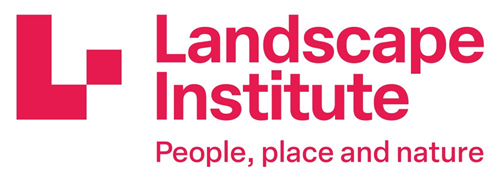Home /Policy & Public Affairs /Climate Change /Workstream 8: Adaptation and resilience
Workstream 8: Adaptation and resilience
In liaison with existing forward planning groups, proposals are being developed to guide professionals in increasing building and environmental resilience and biodiversity in the face of higher temperatures, more extreme weather conditions, flooding, pollution, infestation and future pandemics. Recommendations will be developed in relation to nature-based solutions, development of tighter regulations and other measures.
The workstream is led by Landscape Institute (LI) and includes measurable deliverables divided into three priority groupings: short-term, medium term and long term.

What have participants achieved so far?
Workstream 8’s continuing focus is on knowledge discovery and sharing, making sense of the body of work on adaptation and resilience, which has already been done, spotting gaps in information and identifying opportunities for further research. In all this we look to highlight activity and evidence which is most practical and useful to members of supporting professional institutions. In this way, we can usefully seek to establish a baseline of awareness, knowledge and understanding.
Webinars
Workstream 8 have produced a series of free webinars on the topics of water management, extreme heat and biodiversity health.
As part of our scoping for workstream 8, we have asked the question ‘what are built environment professionals looking for, in order to help them become better equipped to address adaptation and resilience issues?’ Three basic requirements:
- Basic knowledge and awareness of climate resilience opportunities especially in the context of nature-based solutions and biodiversity
- Sign posting! What’s out there? Where to access information and expertise?
- Metrics for resilience
Adaptation and resilience are both massive topics in their own right with existing, dedicated and well-documented knowledge and resources for both the built environment and infrastructure sectors.
Alongside buildings and infrastructure and inspired by the most urgent adaptation risks, as set out by the Committee on Climate Change[1], we have extended the focus of workstream 8 to include biodiversity loss and gain, water availability (drought and flooding), and increased urban heat.
Biodiversity Loss and Gain: This includes risks to natural capital including wildlife, habitats, soils, coastal, marine and freshwater eco-systems and climate regulation. Risk to people include food security, health and economic impact.
Water Availability: A changing climate disrupts water patterns, leading to increased risks of flooding, drought, erosion, water quality and wide-ranging associated impacts. With water covering around three quarters of the earth’s surface, water plays a fundamental role in building adaptation and resilience. This inter-disciplinary webinar will explore nature-led strategies for navigating these complex challenges, including how co-design can positively support long term solutions. With a panel of experts from various fields, we will discuss ways to develop innovative and holistic water management solution within different project contexts and scales. From sponge cities, carbon sequestering habitats, nature-based solutions and community-led strategic thinking, the webinar will provide a comprehensive exploration of building healthy and resilient water systems.
We successfully hosted this insightful webinar on Wednesday, 11 June 2025, uniting global perspectives to reimagine water systems.
Couldn't join live? The full recording is now available-watch here to explore nature-led resilience and cross-sector innovation in action.
Increased Urban Heat: Rising heat levels across our environments driven by climate change and growing urbanisation are resulting in increased frequency, intensity and duration of extreme heat events. This issue is complex, extending beyond temperature. To understand it, we need to look at a broad range of microclimate interactions - humidity, air and water patterns, vegetation and water networks. Heat poses a distinct threat to ecosystems, human health and settlements, infrastructure and economies. This inter-disciplinary webinar will explore innovative strategies for navigating this complex challenge. Our panel of experts bring together research, policy and practice and will discuss cross-disciplinary collaborations to develop holistic design strategies, including innovative community-led stewardship solutions.
From city-scale strategies to small-scale projects, nature-based solutions and codesigned projects and stewardship, the webinar will provide an exploration of effective strategies for mitigating heat, adapting and building resilient and thriving places...Building on the outcomes of this session, the next webinar will be held in September 2025 to further examine these critical themes through an online platform.
For updates, follow our LinkedIn account "CIC Climate Change Committee Workstream 8: adaptation and resilience”
Next steps
1. Continue to monitor, identify and commend latest intelligence - articles, information and publications - through the lens of adaptation and resilience. Create greater awareness of the existing body of work, help spot knowledge gaps and explore new ideas.
2. Create a dedicated LinkedIn page for workstream 8. We invite all those with a professional interest in adaptation and resilience to join the discourse. Do please visit https://www.linkedin.com/groups/12921814/ and sign up.
3. Collaborate with professional institutions and others to consider applications, metrics and models which can make a useful contribution to the adaptation and resilience work of built and natural environment professionals.
Resource Library
- Biodiversity Net Gain: delay welcomed, but details, resources and training for planning teams still needed
Article from the Royal Town Planning Institute with supporting survey findings on skills and staffing shortages within local planning authorities: https://www.rtpi.org.uk/news/2023/september/biodiversity-net-gain-delay-welcomed-but-details-resources-and-training-for-planning-teams-still-needed/
- Making SuDS mandatory – some dos and don'ts
Wales made it compulsory to build sustainable drainage systems (SuDS) into new developments four years ago. As England prepares to follow suit next year, what can it learn from the neighbours? Blog by Ian Titherington published by the Chartered Institution of Water and Environmental Management (June 2023).
https://www.ciwem.org/news/making-suds-mandatory-some-dos-and-donts
- 5 things the UK’s new climate adaptation plan means for infrastructure resilience
This blog from the Institution of Civil Engineers reviews the Government’s third National Adaptation Programme (NAP3), (published in July 2023) and expresses concerns about the slow rate of progress.
- Climate change adaptation
This blog from the Institution of Civil Engineers reviews the Government’s third National Adaptation Programme (NAP3), (published in July 2023) and expresses concerns about the slow rate of progress.
https://ukgbc.org/our-work/climate-change-adaptation/
[1] https://www.theccc.org.uk/preparing-for-climate-change/uk-adaptation-policy/
